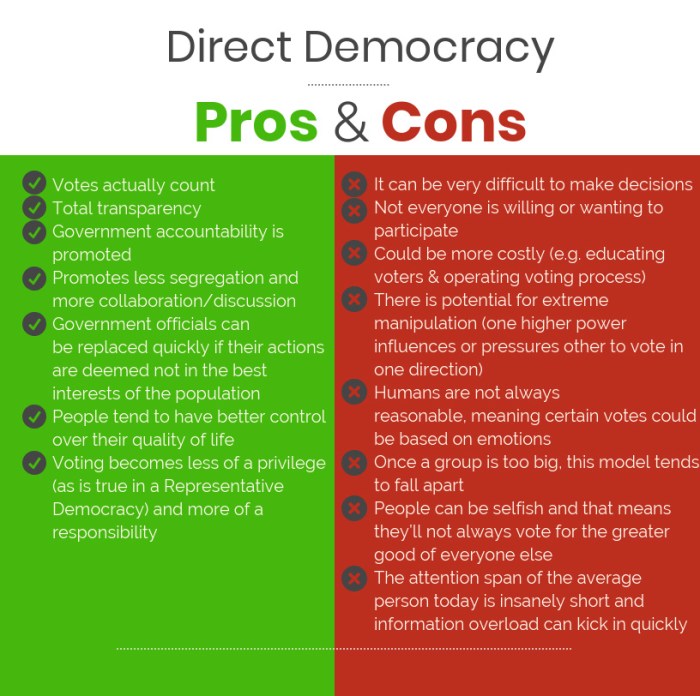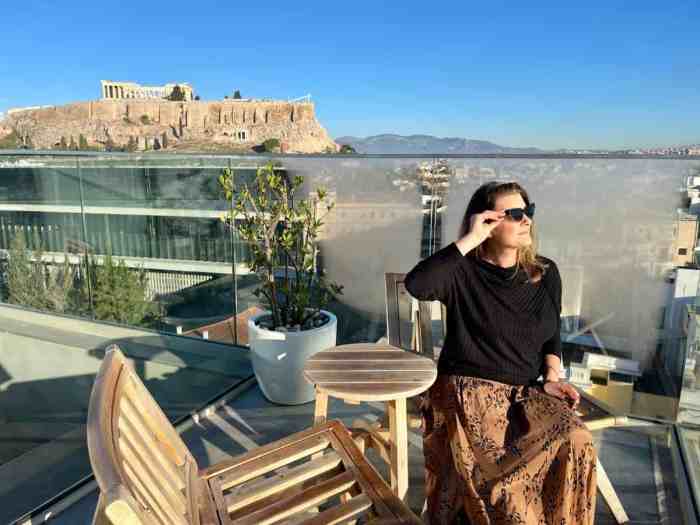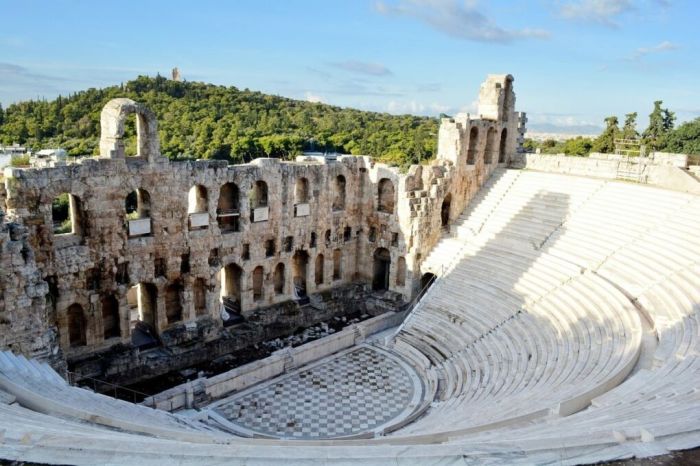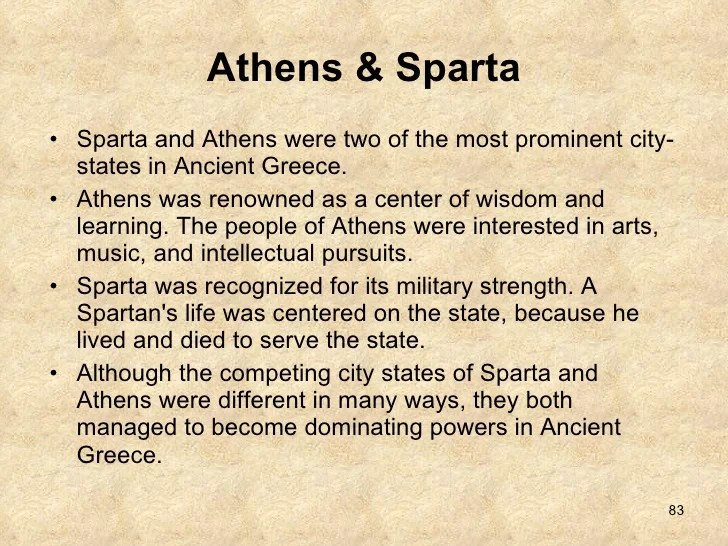Ancient athens pros and cons – Ancient Athens stands as a testament to the enduring power of human civilization, offering a wealth of insights into the development of democracy, culture, and society. Join us as we delve into the fascinating tapestry of Ancient Athens, examining its myriad pros and cons and their profound influence on Western civilization.
From the vibrant intellectual landscape to the challenges faced by its citizens, Ancient Athens presents a complex and captivating study that continues to inspire and inform.
Pros of Ancient Athens

Ancient Athens, the birthplace of democracy, was a flourishing metropolis that made significant contributions to Western civilization. Its democratic principles, cultural achievements, and architectural marvels continue to inspire and fascinate to this day.
Democratic Principles
Athenian democracy was founded on the principle of isonomia, or equal political rights for all citizens. This was reflected in the establishment of the Ecclesia, an assembly where all male citizens could participate in decision-making. The Athenian system fostered political participation and allowed for the emergence of influential leaders such as Pericles and Demosthenes.
Cultural Achievements
Athens was a hub of intellectual and artistic activity. Its philosophers, including Socrates, Plato, and Aristotle, laid the foundations of Western thought. Athenian literature, represented by playwrights like Aeschylus, Sophocles, and Euripides, explored themes of human nature and societal issues.
The city’s artists produced exquisite sculptures, pottery, and architecture, showcasing their exceptional craftsmanship and creativity.
Architectural Marvels
Ancient Athens was adorned with magnificent architectural structures. The Parthenon, a temple dedicated to the goddess Athena, is a masterpiece of Doric architecture. Its iconic columns and sculptures symbolize the grandeur and power of the Athenian state. Other notable buildings include the Erechtheion, a temple with an unusual Caryatid porch, and the Theater of Dionysus, where plays were performed.
Cons of Ancient Athens

Despite its numerous achievements, Ancient Athens also faced several challenges and limitations.
Social Stratification and Citizenship Limitations, Ancient athens pros and cons
Athenian society was highly stratified, with citizens enjoying significant privileges and non-citizens facing various restrictions. Citizenship was limited to free, adult, male Athenians. Women, slaves, and foreigners were excluded from political participation and held a lower status in society.
Reliance on Slavery
Athens heavily relied on slavery, with slaves constituting a significant portion of the population. Slaves performed essential tasks in various sectors, including agriculture, construction, and domestic work. The institution of slavery had a profound impact on Athenian society, shaping social relations and economic structures.
Challenges Faced by Women
Women in Ancient Athens faced significant restrictions and limitations. They were excluded from political and public life, and their roles were primarily confined to the domestic sphere. Women had limited legal rights and were often subject to the authority of their fathers or husbands.
Economic Considerations

Ancient Athens flourished economically, boasting a vibrant and prosperous society. The city’s wealth stemmed from various sources, including:
- Agriculture:Athens had fertile soil and a favorable climate for growing crops such as olives, grapes, and wheat.
- Trade:The city’s strategic location on the Aegean Sea made it a hub for trade and commerce. Athenian merchants traded with other Greek city-states, as well as with Egypt, Persia, and beyond.
- Craftsmanship:Athenian artisans were renowned for their skills in pottery, sculpture, and metalworking. These crafts were exported to other regions, generating significant revenue.
- Silver Mining:The nearby Laurion silver mines were a major source of wealth for Athens. The silver was used to mint coins, which became the standard currency throughout Greece.
Trade and commerce played a pivotal role in shaping Athenian society. Merchants and traders formed a wealthy and influential class. The city’s bustling marketplaces were centers of economic activity and social interaction.
Economic Disparities
Despite its economic prosperity, Ancient Athens faced significant economic disparities and inequalities. The wealthy elite, including landowners, merchants, and mine owners, controlled a large share of the city’s wealth. In contrast, the majority of the population, including farmers, artisans, and laborers, lived in poverty.
Ancient Athens was a place of great learning and culture, but it also had its drawbacks. For example, the city was often plagued by war and disease. Goody Blake and Harry Gill is a poem that tells the story of two men who live in poverty in an ancient city.
The poem explores the themes of good and evil, and the nature of justice. While the poem is not set in Athens, it offers a glimpse into the lives of people who lived in ancient Greece. The poem also provides a reminder that the problems of poverty and injustice are not unique to our own time.
- Land Distribution:Land ownership was highly concentrated in the hands of a few wealthy families. Many farmers were forced to work as tenants on the estates of the wealthy, paying high rents and living in poverty.
- Wage Labor:Most artisans and laborers worked for low wages and had little job security. They were often exploited by their employers and faced harsh working conditions.
- Slavery:Slavery was widespread in Ancient Athens. Slaves were used as domestic servants, agricultural workers, and laborers in workshops. They had no rights and were treated as property.
Political and Military Structures

Ancient Athens boasted a sophisticated political and military system that played a pivotal role in shaping its destiny. At the heart of Athenian governance lay a complex interplay of democratic institutions, powerful individuals, and a formidable military.
Athenian Government
Athenian government evolved over time, gradually transitioning from a monarchy to a democracy. By the 5th century BC, Athens had established a system known as the “Athenian democracy,” characterized by the direct participation of citizens in decision-making.
- Ecclesia (Assembly):The primary legislative and policy-making body, open to all male citizens over 18. It debated and voted on laws, declared war and peace, and elected officials.
- Boule (Council of 500):A representative body that prepared agenda items for the Ecclesia, managed finances, and supervised government operations.
- Dikasteria (Courts):Composed of randomly selected citizens, these courts adjudicated legal disputes and held officials accountable.
- Areopagus:A council of former archons (chief magistrates) that served as a supreme court and advisory body.
Military Prowess
Athens maintained a formidable military force, consisting of hoplite infantry, cavalry, and a powerful navy. Hoplites, heavily armed infantrymen, formed the backbone of the Athenian army and played a crucial role in land battles.
- Triremes:Athenian warships, known as triremes, were swift and maneuverable, giving Athens naval supremacy in the Aegean Sea.
- Delian League:An alliance of Greek city-states led by Athens, the Delian League provided Athens with financial resources and military support.
- Peloponnesian War:Athens’ rivalry with Sparta culminated in the Peloponnesian War (431-404 BC), a protracted conflict that ended with Athens’ defeat and the decline of its empire.
Political Rivalries and Conflicts
Despite its democratic ideals, Athenian society was not immune to political rivalries and conflicts. The rivalry between the democratic and oligarchic factions led to periodic instability and even violence.
- Ostracism:A process by which citizens could vote to exile individuals deemed a threat to the state.
- Tyranny:Athens experienced periods of tyranny, when power was concentrated in the hands of a single individual.
- Social and Economic Inequality:Wealthy elites often wielded disproportionate influence in Athenian politics, leading to tensions with the poorer classes.
Questions Often Asked: Ancient Athens Pros And Cons
What were the key democratic principles of Ancient Athens?
Ancient Athens implemented principles such as isonomia (equal treatment under the law), isegoria (freedom of speech), and demos kratein (rule by the people), fostering active political participation among its citizens.
How did Ancient Athens contribute to the development of Western philosophy?
Athens became a hub for philosophical inquiry, with renowned thinkers like Socrates, Plato, and Aristotle shaping the foundations of Western philosophical thought, exploring concepts such as ethics, politics, and metaphysics.
What were the economic disparities within Ancient Athenian society?
Ancient Athens exhibited significant economic inequalities, with a wealthy elite controlling much of the land and resources, while a large population of poor citizens struggled to make ends meet.